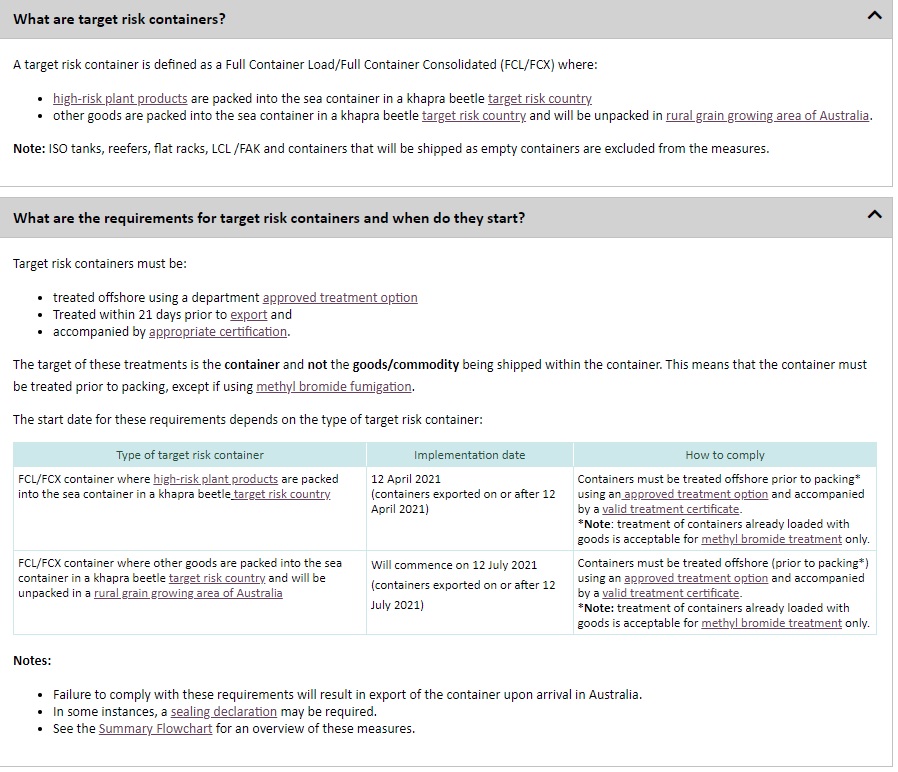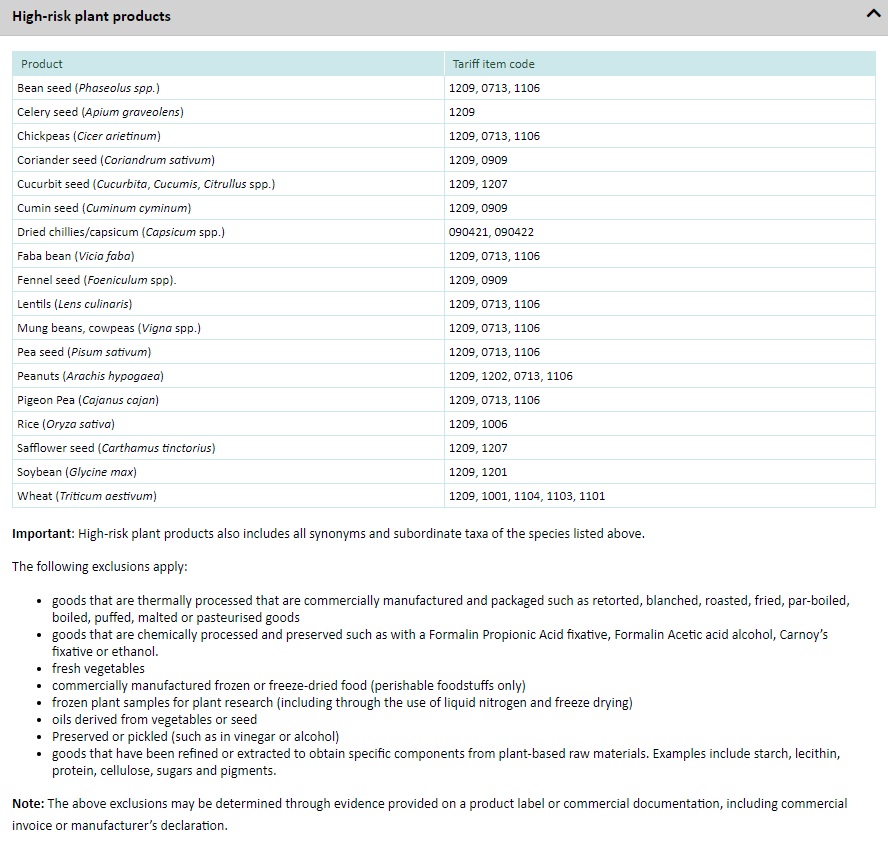As of the 12th July it will extend to all other products from Target risk countries that on arrival will be unpacked in a rural grain area ( postcodes attached)
Containers that fall under either condition must be fumigated at origin prior to departure. Any containers that arrive that are not treated will be directed to be re-exported as ONSHORE treatment is not an option currently.

Khapra beetle is found throughout Asia, Africa, the Middle East and Europe.
The department has identified the following countries as those where khapra beetle is present:
Khrapa beetle target risk countries
- Afghanistan
- Albania
- Algeria
- Bangladesh
- Benin
- Burkina Faso
- Côte d’Ivoire (Ivory Coast)
- Cyprus
- >Egypt
- Ghana
- Greece
- India
- Iran, Islamic Republic of
- Iraq
- Israel
- Kuwait
- Lebanon
- Libya
- Mali
- Mauritania
- Morocco
- Myanmar
- Nepal
- Niger
- Nigeria
- Oman
- Pakistan
- Qatar
- Saudi Arabia
- Senegal
- Somalia
- South Sudan
- Sri Lanka
- Sudan
- Syrian Arab Republic
- Timor-Leste
- Tunisia
- Turkey
- United Arab Emirates
- Yemen

Sealing declaration
A sealing declaration may be required in some instances. Ensure you use the sealing declaration template.
1. To demonstrate that Phase 6A measures do not apply to a container.
As outlined in the summary flowchart, a sealing declaration is required for certain containers to confirm the packing location. For example, sea containers that are packed in a non-khapra beetle country (i.e. containers packed with high-risk plant products or containers destined for a rural grain growing area of Australia) but:
2. To demonstrate that a container has been treated within 21 days prior to export.
The date of export is defined in the Minimum documentary and import declaration requirements policy. Under this definition, a consignment is considered to be exported either:
- when it is lodged with the freight forwarder, shipping company/airline, charter operator or an appointed agent in the country of origin, for ultimate destination in Australia
- when it is shipped on board the vessel
- when it is packed in a container and sealed in preparation for export.
As an example, if the container is packed and sealed within 21 days of treatment, the container meets the treatment within 21 days of export requirement. To demonstrate that this requirement has been met a sealing declaration is required. Please refer to the section 9.1 of the Minimum documentary and Import declaration requirements policy for guidance on other options to provide documentary evidence to demonstrate the date of export.
Onshore treatment
Onshore treatment will not be currently offered as a standard practice as movement of untreated containers currently poses an unacceptable risk. This is because khapra beetle could be dislodged from the container into the environment when moving the container from the port to a treatment facility.
Onshore risk mitigation options will only be considered in exceptional circumstances or when the department’s in-transit policy is enacted.
Kind Regards,
Jeremy Peisley,
Customs Manager